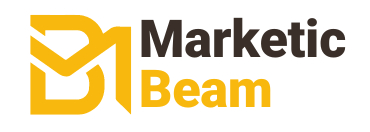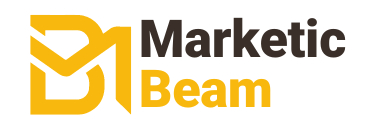Tools
12 Most Powerful Digital Marketing Tools In 2023
Published
1 year agoon
By
admin
Recently, digital marketing tools have been moving at the speed of light. New industry tools are being built while old ones are being retired; more tools are being introduced while others are being phased out.
It can be difficult to keep up as an online marketer and ensure you’re using the right tools for your needs.
This blog post will discuss the 12 best digital marketing tools for 2023 that you can use to boost your marketing efforts and reach a larger audience.
Here are the best digital marketing tools,
1. Google Analytics
Google Analytics is a digital marketing tool that allows you to see how visitors interact with your websites, videos, and apps. It can provide data on your website traffic, app usage, and video engagement.
Google Analytics is a free and simple web analytics tool that can help you answer questions like:
- Who is visiting my website?
- What exactly are they doing there?
- Why are they leaving?
- How can I make my website better?
2. Google Keyword Planner
Google Keyword Planner is a free, easy-to-use keyword tool for digital marketers that can help you understand the search volume for your keywords and how competitive they are in Google AdWords. So you can find the right keywords for your website.
- Google Keyword Planner allows you to enter up to 1,000 keywords at once and then shows you the following information:
- How much traffic (specifically, search volume) each keyword will get if you bid on it in Google AdWords?
- How much would it cost per click (CPC) if you bid on these keywords?
- Which related terms might receive similar amounts of traffic so that you can add them to your account later?
3. Google Tag Manager
Google Tag Manager is a free and simple digital marketing tool for managing all of your website’s tags in one place. It allows you to add, update, and remove tags from your website without touching the code.
Google Tag Manager integrates with a variety of analytics and marketing platforms, such as Google Analytics, Facebook Pixel, Twitter Cards, and others.
Once you’ve installed Google Tag Manager on your site, you can create custom variables (such as user IDs) that are saved in Google Analytics.
You can use these variables in other tools like Facebook Pixel or AdWords Conversion Tracking.
Google Tag Manager can be used to:
- You can update your tracking code without changing the HTML source code.
- Control which tags displayed on which pages.
- Configure tag firing rules based on pageview type or other dynamic page elements.
- Set up data layer variables for event tracking without writing any JavaScript code.
4. HubSpot
Hubspot is a digital marketing tool that helps you build, manage, and optimize your website. It’s mainly used for lead generation and conversion tracking. HubSpot can help with:
- Website creation – A website builder that lets you create a professional website without having to know how to code or pay for expensive design services.
- A CRM (Customer Relationship Management) system that allows you to track and manage leads, customers, and prospects
- Email marketing – It helps you build lists of potential clients and send out targeted emails based on their interests and needs.
- Social media management – You can manage all your social media accounts in one place instead of having to log into each one separately.
and more.
5. Hootsuite
Hootsuite is a social media tool that allows you to manage all of your social media accounts in a single location.
It enables you to plan, schedule, and publish content across multiple channels such as Facebook, Twitter, Instagram, and LinkedIn, among others.
Hootsuite Analytics allows you to track your brand’s social media performance in one place.
Real-time tracking of metrics such as engagement, reach, and conversation rate is possible with the analytics feature.
6. Buffer
Buffer is a free social media scheduling tool for individuals and businesses. You can schedule posts on Facebook, Instagram, LinkedIn and Twitter
The Buffer app allows you to:
- Schedule posts ahead of time so they’re ready to go when the time comes.
- Use multiple accounts on multiple networks at the same time.
- Obtain analytics for your posts.
7. Canva
Canva is a designing tool for creating, editing, and sharing images. It allows you to create your own business cards, social media graphics, advertisements, and other materials.
Canva has the following features:
- Canva provides a large selection of free templates that you can customize to meet your needs. Business cards, flyers, and brochures are examples of templates.
- Customizable graphics: You can change the fonts, colors, and images in each of your designs.
- Canva’s mobile app allows you to work on projects and access the Canva library from anywhere.
8. Mailchimp
Mailchimp is a digital marketing tool for sending emails and newsletters to your subscribers. It’s simple to use, and it’s free for the first 2,000 subscribers.
- Mailchimp allows you to quickly and easily create beautiful email campaigns.
- You have the option of using the drag-and-drop builder or creating your own template from scratch.
- Email campaigns that are mobile-friendly and responsive, so they look great on any device.
- Mailchimp now allows you to include images and videos in your campaigns, making them more visually appealing and engaging than ever before.
- Within your emails, you can also include links to external landing pages or websites.
9. SEMrush
SEMrush allows you to track your competitors’ search engine marketing efforts. It provides an overview of the
- keywords they’re targeting,
- how much they’re spending on each keyword, and
- where their ads are appearing.
With SEMrush, you can also see what keywords your competitors rank for and the number of backlinks pointing to their websites.
You can even see how much traffic each of their pages is getting.
10. Ahrefs
Ahrefs is a digital marketing tool that allows you to track your competitors’ backlinks, find new link-building opportunities, and monitor the progress of your own site.
It will assist you in:
- Identify the highest-performing links on any given page.
- Discover who is linking to your competitors and what they have to say about them.
- Examine the performance of specific keywords in various regions or countries.
- Track Google, Bing, Yahoo, and Yandex organic traffic. It helps to increase website traffic.
11. Hotjar
Hotjar is a digital marketing tool that allows you to learn what your website visitors are thinking and feeling.
It provides information about how visitors use your site, such as where they click and how long they stay on the page.
Hotjar also includes heatmaps, which allow you to see where people are clicking and which parts of your page are being visited the most.
The analytics and feedback tools provided by Hotjar allow you to quickly understand what your customers want, feel and do on your site.
You can then use this information to improve your visitors’ experiences and increase conversions.
12. Unbounce
Unbounce is a digital marketing tool that allows you to easily create and publish landing pages.
Because they are where you capture leads to convert into customers, landing pages are the most important part of your website.
Unbounce can help you create an optimized landing page for any offer or campaign, including email, social media, and paid advertising campaigns.
Unbounce assists you in optimizing your landing pages so that they convert better than ever. It accomplishes this by tracking visitor behavior and making changes to your site based on what visitors do on it.
We hope you’ve had as much fun as we have and that you’ll continue to use these tools to grow your business in the years ahead!







